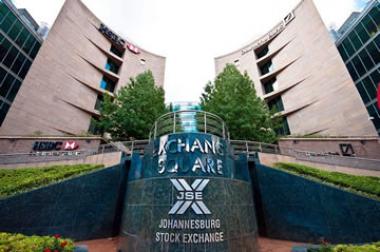Not a rosy picture for Listed Property Sector
 GDP growth is weak in SA and most residential and commercial development is only taking place in pockets.
GDP growth is weak in SA and most residential and commercial development is only taking place in pockets.
While development projects are under way in Gauteng, most of the big ones were concluded years ago and listed real estate funds are struggling to clinch sizeable deals domestically.
Growthpoint Properties CEO Norbert Sasse says much of the development activity in Gauteng is related to redevelopment and the listed property sector is facing the toughest business conditions yet in SA.
“These are tough times. In fact, I’d say they are the hardest times for the sector since the emergence of listed property as a standalone asset class around 2000,” he says.
He says big firms are hesitant to commit to multiyear, longterm contracts at new buildings. “We aren’t really seeing large blue-chip companies or multinationals who maybe have not had a strong presence in SA before seeking brand-new offices. However, I would think that when consolidation happens again across various industries, that will create new office development opportunities.”
But with new developments, big corporations are looking for modernisation. “Some companies which rent large premiumgrade offices are perhaps changing the inside layout of their offices and requiring openplan offerings. They may want high-quality WiFi, energy-saving facilities and more parking bays. These companies are the tenants who want the best of best in office design and would be prepared to pay a premium.”
GDP growth is weak in SA and most residential and commercial development is only taking place in pockets, says real estate strategist John Loos.
Loos, FNB’s household and property sector strategist, says while real estate is being developed in SA, the level of activity is well below where it was during the boom times.
“Sandton, Rosebank and a few other nodes are standing out amid a low-growth economy. This is a cycle of stagnation in the economy which we last saw in the late ’80s and early ’90s.”
However, Redefine Properties executive director of development Mike Ruttell says “things are business as usual” for the company. Redefine is one of the biggest real estate investment trusts (Reits) listed in SA. “We’re managing to turn over about R2-billion a year in developments. This is while it has become more difficult to acquire ready-built stock in SA.”
He says most of Redefine’s new builds are located in prime nodes including Sandton and Rosebank. It recently completed construction of law firm Webber Wentzel’s new head office at 90 Rivonia Road in Sandton. It is building the new Rosebank Towers office development that Ruttell says is 80% let, and has announced it will transform Rosebank Mews; a shopping centre, into offices.
Ruttell says it will be of the same standard as various Sandton office properties.
“Rosebank Mews is very well positioned. It’s right by the Gautrain. We are very excited about it and will be able to go to ground on spec. We intend to get a big tenant in as an anchor and are confident our office developments will excel in the Rosebank node, which in the near future could be the most desired node for business in Gauteng.”
The company is refurbishing assets it owns in other areas. Many were retail assets owned by Fountainhead Property Trust. Redefine acquired Fountainhead last year, getting its hands on a portfolio that was valued at about R14bn.
One asset that is undergoing a revamp is Centurion Mall. The centre’s tenant mix is being improved. Redefine is also upgrading East Rand Mall, a shopping centre in which it has a 50% stake.
In terms of industrial property, Ruttell says traditional nodes such as Isando and Midrand are enjoying some new developments.
Loos, Ruttell and Sasse agree that SA will not see any nodes surprise with mass development in the near future.
“We need strong economic growth in order for a new node to rise into prominence, or for a node which was forgotten to regain its former glory,” says the FNB’s Loos.
“You also need to look at nodes relative to each other. Randburg may be seeing some redevelopment, but it is not thriving. Still, if you are a person who lived in a small township for example, you may move to Randburg because you view it as an upgrade,” he says.

















